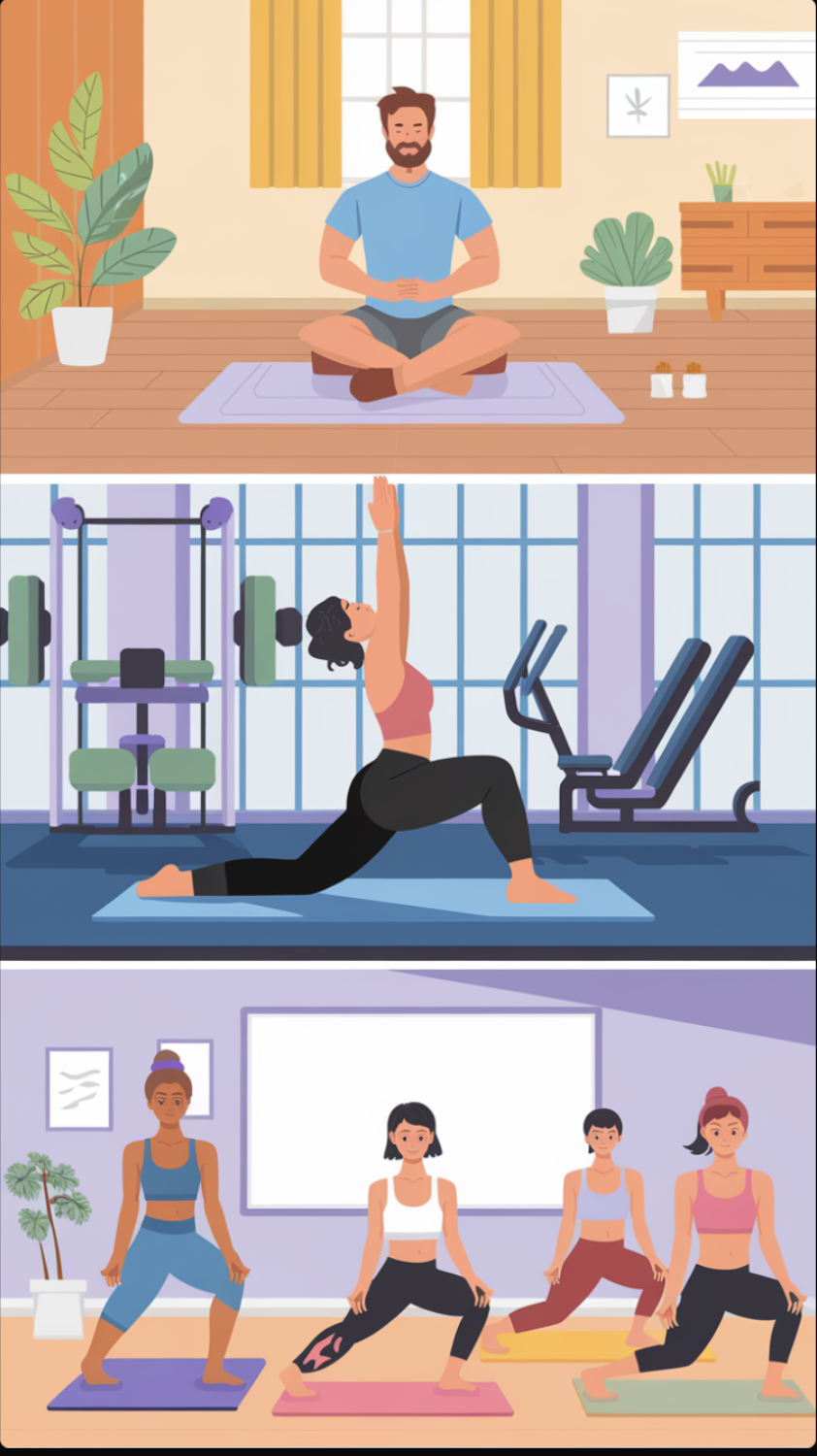We explore studies that provide evidence of the benefits of this ancient practice, from reducing tension and reducing back pain to preventing dementia and increasing pain tolerance.
Reduces Inflammation
Medical and Yoga Study Reveals Potential for Inflammation Reduction
According to a comprehensive study published in Psychosomatic Medicine at the University of Ohio, frequent yoga practice reduces inflammation in the body by significantly. Two groups of participants were compared: those who practised yoga twice a week for one year and those with minimal yoga experience. According to the study, non-yoga practitioners’ C-reactive protein levels were nearly five times higher than those of regular yoga practitioners.
Relieves Stress
University of South Australia Study Shows Yoga’s Positive Impact on Stress Relief
The University of South Australia conducted a study on 131 subjects who practised yoga for an hour a week for ten weeks to examine the mental benefits of yoga. The control group, on the other hand, took relaxation and stress management classes. Yoga practitioners reported feeling much less stressed and anxious at the end of the study. Yoga practitioners experienced mental health improvements at a rate 7.8 times higher than control group participants.

Enhances Alertness
Yoga Practice Linked to Increased Alertness Among Breast Cancer Patients
It was a 12-week program of bi-weekly Iyengar yoga practice or a lecture series on health issues that 31 women recovering from breast cancer were given the choice of. Yoga participants reported a significant increase in alertness compared to those who attended the lecture program, and experienced 33% less fatigue than those who participated in the lecture program.
Boosts Pain Tolerance
Yoga Practitioners Show Higher Pain Tolerance, Study Suggests
In a study published in the journal Cerebral Cortex, researchers examined the pain tolerance of 14 regular yoga practitioners compared to a group of non-yoga practitioners . During a cold tolerance test, both groups immersed their hands in ice water to test their physical attributes. In the study, experienced yoga practitioners were able to endure cold water more than twice as long as non-yoga practitioners, indicating that they were more pain-tolerant.

Assists in Quitting Smoking
Scientific Studies Reveal Yoga’s Potential in Overcoming Smoking Withdrawal
Researchers from the University of Oregon in Portland conducted 14 clinical trials that explored the effects of yoga and meditation on smoking cessation. Yoga practice was found to reduce withdrawal symptoms and support quitting attempts. The results of two clinical trials showed that yoga practitioners consumed less cigarettes and had a lower urge to smoke than non-practitioners.
Alleviates Lower Back Pain
University Studies Confirm Yoga’s Effectiveness in Lower Back Pain Relief
The University of Boston and Pittsburgh conducted a study that divided 320 participants into three groups over a course of a year: yoga practitioners (75 minutes per week), physical therapy treatment recipients, and back pain relief practitioners. Both the yoga group and the treatment group experienced significant pain relief. Additionally, 22 percent less medication was required by the yoga group and the treatment group. A positive correlation was also found between regular yoga practice and reduced back pain.

Promotes Healthy Eating Habits
Insights from a US Health Survey Reveal Yoga’s Influence on Healthy Diet Choices
In 2012, over 34,000 U.S. citizens aged 18 and over participated in a health survey revealing that 40 percent of yoga practitioners adopted healthier eating habits as a result of their practice.
Enhances Quality Sleep
Impact of Yoga Practice on Sleep Quality Explored in a 2005 Study
There were 120 participants divided into three groups in a study examining how yoga affects sleep quality: regular yoga practice, herbal sleep treatments, and a control group. The yoga practitioners reported a 10 minute reduction in the time it took to fall asleep compared with their pre-yoga practice after six months. Furthermore, the yoga group reported heightened alertness, while the other groups reported no significant changes in sleeping patterns.
Reduces Blood Pressure
Northwick Park Hospital Study Demonstrates Yoga’s Blood Pressure-Lowering Effects
A study conducted at Northwick Park Hospital in England involved 39 participants with high blood pressure. One group practised yoga for six weeks, while the other group received a relaxing treatment other than yoga. In both groups, blood pressure levels decreased, but the reduction was greater significant in the yoga group. In a subsequent phase, the control group also practised yoga for six weeks, achieving a reduction in blood pressure similar to the first group.
Helps in weight Loss
Study Shows Yoga’s Impact on Weight Loss in Overweight Individuals
A study conducted in Karnataka, India in 2016 divided 80 extremely overweight men into two groups. One group practised yoga for 14 weeks, while the other was a control group without exercise.

Improves memory and prevents dementia
According to a study published in the Journal of Alzheimer’s Disease, 25 volunteers aged 55 and older who reported memory difficulties benefited from yoga practice. The subjects were divided into two groups – one group practised yoga for an hour a week and meditation for 20 minutes a day. The second group participated in memory-boosting exercises.

Researchers found that the verbal skills of the participants in both groups improved at similar rates. However, the visual memory of the yoga practitioners improved significantly more.




